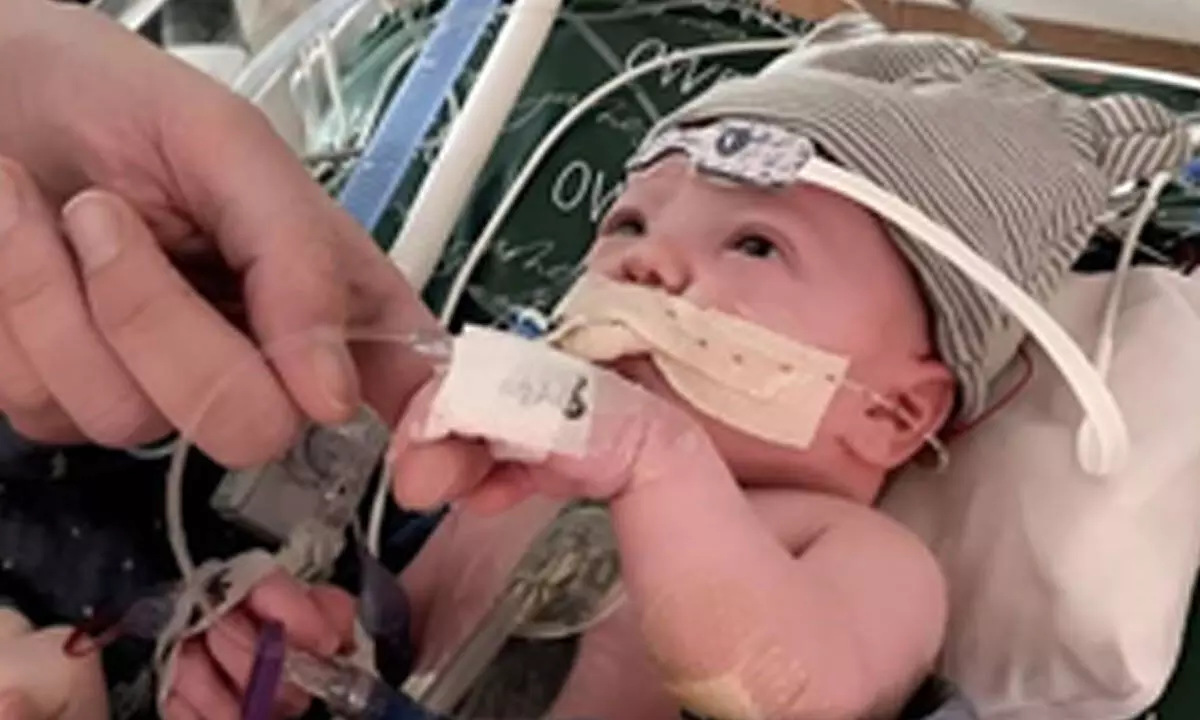Live
- Kolkata Police investigate Bengal-based NRIs abroad with fake Indian passports
- Chandrababu extends Sankranti greetings to Telugu people
- Piyush Goyal urges cleantech sector to go for self-sustaining innovations
- Yogi flags off 100 new buses for Mahakumbh devotees
- Yemen's Houthis to 'pay heavy price' for attacking Israel, warns Netanyahu
- Yogi inaugurates UP Darshan Mandapam
- AAP, BJP cross swords over Purvanchali voters
- Ram Mandir a symbol of faith for generations: HM Shah on 1st anniv of Pran Pratishtha
- Congress Faces Internal Strife as Activists Disagree at Vadde Obanna Birth Anniversary Event
- Comic Con India’s much-awaited 12th edition to be held on Jan 18-19
Just In

In a first in the world, an 18-year old boy in 2022 underwent a partial heart transplant. Now, more than a year later, the procedure that repaired functioning valves and arteries in his heart has grown along with the toddler, revealed a study.
New York: In a first in the world, an 18-year old boy in 2022 underwent a partial heart transplant. Now, more than a year later, the procedure that repaired functioning valves and arteries in his heart has grown along with the toddler, revealed a study.
The pioneering procedure was performed by a team of physicians at the Duke University in the US in the spring of 2022, in an infant who needed heart valve replacement.
The previous standard of care -- using valves that were non-living -- would not grow along with the child, requiring frequent replacement, entailing surgical procedures that carry a 50 per cent mortality rate.
The new manner of valve procurement used during the partial heart transplant led to two well-functioning valves and arteries that are growing in concert with the child as if they were native vessels, revealed the study published in the Journal of the American Medical Association (JAMA).
"This publication is proof that this technology works, this idea works, and can be used to help other children," said Joseph W. Turek, Duke's chief of paediatric cardiac surgery, who led the landmark procedure.
The study also found the procedure requires about a quarter of the amount of immunosuppressant medication than a full heart transplant, potentially saving patients from detrimental side effects that might compound over decades.
Turek said the innovation has paved the way for a domino heart transplant, where one heart is able to save two lives.
During a domino heart transplant, a patient who has healthy valves but is in need of stronger heart muscle receives a full heart transplant; their healthy valves are then donated to another patient in need, creating a domino effect.
"You could potentially double the number of hearts that are used for the benefit of children with heart disease," Turek said. "Of all the hearts that are donated, roughly half meet the criteria to go on to be used for full transplant, but we believe there's an equal number of hearts that could be used for valves."
"If you introduce the donated hearts that weren't being put to use into the supply chain and add the valves from domino heart transplants, that can create a substantial change," Turek said.
The partial heart transplant procedure has since been performed 13 times at four centres around the world, including nine at Duke, several of which have been domino heart transplants.
Turek said bringing this innovation to a clinical trial would be the next step to achieving the volume in procedures that would change the availability of hearts by a large amount.
"This innovation adds a lot to the whole donation community," Turek said, "because it's treating more kids, while also honouring the wishes of selfless donor parents who've given the ultimate gift. It allows them to offer hope to another child in the process."

© 2025 Hyderabad Media House Limited/The Hans India. All rights reserved. Powered by hocalwire.com






